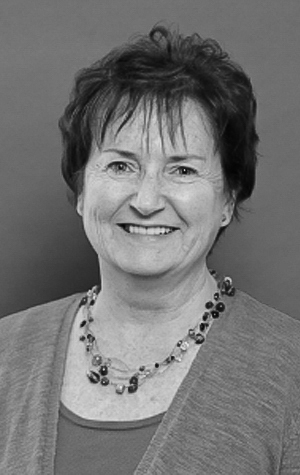Debra Stewart
Emeritus

Biography
Debra Stewart has a background in occupational therapy and graduate training in health research. Her primary research activities are related to the transition to adulthood for youth with disabilities. She was the Project Coordinator at CanChild for "The KIT: Keeping it Together", and the principal investigator for "The KIT: Keeping it Together for Youth" Project, the development of best practice guidelines for the transition to adulthood, and a Canada-wide study about the transition to adulthood for youth with disabilities. Debra has also conducted research about the use of the International Classification of Function, Disability and Health by occupational therapists. Debra is an Associate Professor in the Occupational Therapy program of the School of Rehabilitation Science at McMaster University.
Areas of Focus
adolescents with disability, transition to adulthood, client-centered practice
Resources
Development of a Parent Information KIT (KIT: Keeping it Together™)
The KIT: Keeping it Together™ has been designed to help these parents use information as a tool that will help them to get 'the best' for their child(ren).
Effective Rehabilitation for Children and Youth with Brain Injury: Analyzing the Evidence
This project includes 6 systematic reviews of different rehabilitation interventions for children and youth with brain injury. Topics to be covered are: Hyperbaric Oxygen Therapy, Casting and Splinting, Botox, Alternative Therapies, Feeding and Behaviour Therapy.
Evaluation of An Accessible Playground
This study focused on the impact of an accessible playground on the community and people's attitudes.
Evaluation of an information KIT for parents of children with special needs: Use, utility and impact
The focus of this two-year prospective evaluation (N=500) is to determine the perceptions of impact and use of the Parent Information KIT (KIT: Keeping it Together™) in pediatric rehabilitation settings.
Evaluation of the Opening Doors Project
The aim of this project is to assist the young adults and their families to develop natural support circles and become involved in community activities.
Development and Testing of a Resource Manual for Parents of Young Adults Who Receive Individualized Funding for Support
The goal of this project is to develop a Resource Manual that can be broadly circulated to families who receive individualized funding.
D.O.O.R. 2 Adulthood: A Participatory-Action Research Approach to the Evaluation of an Online Transition Resource for Youth with Disabilities in Ontario
The long-term outcome of "D.O.O.R. 2 Adulthood" is to improve the process of transition to adulthood and to adult programs and services for youth with disabilities and their families in Ontario.
The transition to adulthood for youth with physical disabilities: A qualitative exploration
This qualitative research project examined the experiences, perceptions and needs of youth with physical disabilities in the process of transition from adolescence to adulthood.
Transition to Adulthood Services and Supports for Youth with Disabilities in Ontario: Best Practice Guidelines
There are currently no best practice guidelines in Canada for service planning and delivery that address the transition to adulthood for youth with disabilities. This "In Brief" highlights the recommendations from a research study which used an evidence-based approach to develop such guidelines for services and supports in Ontario.
Alternative And Complementary Therapies: For Children And Youth With Brain Injury - Part 1: Controversies
This Keeping Current is one of a series of reports that discuss the effectiveness of rehabilitation interventions for children and youth with brain injury.
Transition into Adulthood for Youth with Disabilities: A Participatory Action Research Approach
This project will involve taking a participatory action research approach to developing a model for the transition to adulthood for youth with disabilities. This model will be based on capacity-building and community assets and resources.
Developmental Trajectories of Youth with Disabilities (age 12-25 years of age): A Knowledge Synthesis
This report is the outcome of a knowledge synthesis project on developmental trajectories of youth with disabilities, ages 12 - 25 years.
Youth KIT
The purpose of this study is to obtain the ideas, perspectives, and needs of youth with disabilities, parents, and service providers for the content and design of the Youth version of the KIT (Keeping It Together), and to test the utility of the Youth KIT for youth with multiple exceptionalities.
The International Classification of Functioning, Disability, and Health (ICF): A Global Model to Guide Clinical Thinking and Practice in Childhood Disability
The International Classification of Functioning, Disability and Health (ICF) (WHO, 2001) is a classification system developed by the World Health Organization that focuses on the 'components of health'.
